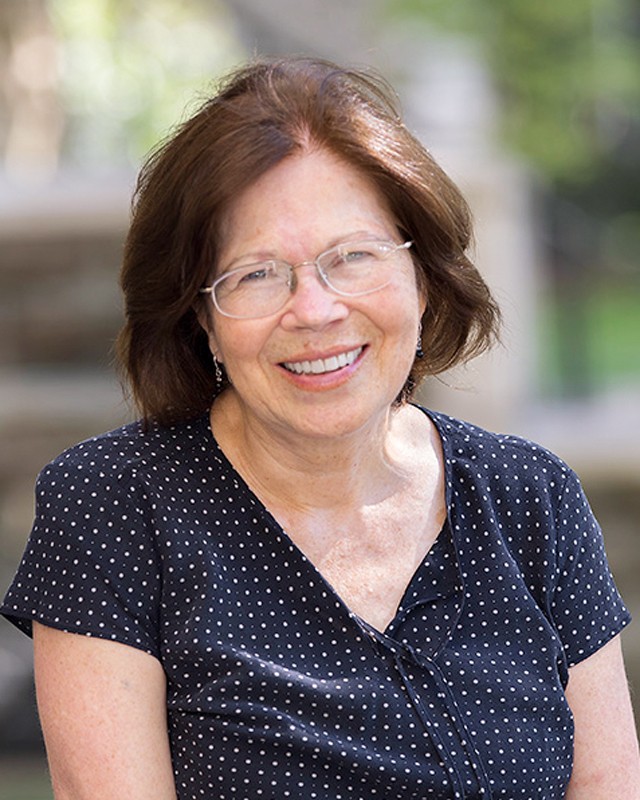Elizabeth Sanders, scholar of U.S. political development, dies at 81
By Kate Blackwood
Elizabeth Sanders, Ph.D. ’78, professor of government emerita in the College of Arts and Sciences (A&S), died Dec. 2 in Cullman, Alabama. She was 81.
An expert in American political development and popular politics, Sanders is remembered by colleagues as a meticulous and original scholar, a generous and devoted teacher and a passionately committed activist.
“Elizabeth Sanders was a wonderful colleague, a dedicated scholar, and a passionate mentor of her students,” said Kenneth Roberts, the Richard J. Schwartz Professor of government (A&S). “She was a leading scholar of American political development, with profound knowledge of 19th century agrarian populism and the progressive movement for political and social reforms. She cared deeply about American democracy and the U.S. place in the world, and she inspired a generation of Cornell students to think creatively about how to make our governing institutions more just, fair and equitable.”
“She was unafraid to offer counter-narrative arguments,” said David Alexander Bateman, associate professor of government (A&S).
Bateman said he considers her 1999 book “Roots of Reform: Farmers, Workers, and the American State, 1877-1917,” to be a foundational text in American politics. Sanders helped shape Cornell’s influence in the development of American political development, he said, and her intellectual influence endures in the broad themes with which the field continues to grapple.
Sanders’ compassion for students made her one of the most deeply appreciated instructors in government, said Christopher Way, associate professor of government (A&S).
“In a department full of excellent teachers, Elizabeth was probably the most devoted to students of all of us,” Way said. “The joy she derived from helping young people grow and reach their potential was a sight to see. She just loved what she called ‘the inexhaustible natural resource of new students arriving on campus year after year.’”
Active in environmental causes, including around the Cornell campus, Sanders demonstrated to prevent the replacement of Redbud Woods by a parking lot, said Matthew Evangelista, the President White Professor of History and Political Science Emeritus (A&S). She was an advocate for on-campus measures like sustainable energy use and bicycle racks with overhead shelters so that commuters could ride year-round.
An activist’s spirit imbued Sanders’ work, Bateman said.
“Elizabeth was an extraordinary person,” he said. “She was supportive, kind and generous, and she never held back. She cared about Congress, the presidency and the capacity for democratic self-government these were supposed to enable. She was committed to the government department, to her students, to her colleagues and to Cornell, and she pushed us always to live by our highest ideals.”
Mildred Elizabeth Sanders was born in 1943 in Athens, Alabama. She completed undergraduate studies in history and political science at Auburn University in 1964 and went on to earn a master’s degree in international relations from Georgetown University in 1969, writing a thesis on class and party conflict in the development of a modern administrative state in Chile, where she had worked as a teacher and community organizer with the Peace Corps from 1966-68.
Sanders received her Ph.D. in American government from Cornell in 1978, writing a dissertation on electorate expansion and public policy transformation in the American South from 1962-76.
Beginning in 1970, Sanders was a faculty member at Auburn University, Rice University and then the New School for Social Research, where she chaired the political science department from 1987-90.
Sanders joined the Department of Government faculty at Cornell in 1992. Promoted to professor in 1997, she was instrumental in leading the department’s honors program and mentoring honors students. She retired in 2019.
Her book “Roots of Reform: Farmers, Workers, and the American State, 1877-1917,” won the 2000 Greenstone Prize, given by the American Political Science Association (APSA) for the best book in politics and history. Her 1982 book, “The Regulation of Natural Gas: Policy and Politics, 1938-1978,” won the APSA’s Gladys M. Kammerer Prize for best book on American public policy that year. In addition, she published many journal articles throughout her career.
Sanders served as the president of the APSA History and Politics section in 2004-05. She was a fellow at the Wilson International Center for Scholars at the Smithsonian Institution.
She is survived by spouse Richard Bensel, M.A. ’75, Ph.D. ’78, the Gary S. Davis Professor of Government (A&S), and their son, Seth Bensel.
Media Contact
Get Cornell news delivered right to your inbox.
Subscribe
